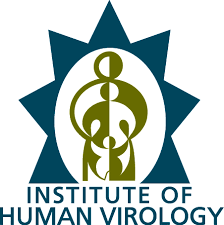By Asma’u Ahmad
The Institute of Human Virology Nigeria (IHVN) said there is high prevalence of depression, suicide and alcohol abuse among People Living with HIV (PLHIV) in Nigeria. This was contained in a statement issued by the IHVN Communication Manager, Mr. Dennis Mordi, in Abuja.
It said this was part of the research finding conducted by the institute in collaboration with GEDE Foundation.
It explained that the research study showed that one out of three PLHIV experienced a major depressive episode in the past year.
The statement also said that one out of 12 PLHIV engage in harmful alcohol use and three out of 100 PLHIV have attempted suicide.
IHVN Director Clinical, Medical Services, Dr. Ernest Ekong, said that 28 per cent of the 1187 interviewees had a major depressive episode, while seven per cent abused alcohol and two per cent were alcohol dependent, it said.
The statement also quoted Ekong as saying that 14 per cent of those who participated in the study had thought of committing suicide in their life time.
 “This study shows that mental health issues are very common among our patients and we found out that alcohol use is very common especially among women,” he said.
“This study shows that mental health issues are very common among our patients and we found out that alcohol use is very common especially among women,” he said.
According to him, 14 per cent of those who participated in the study had thought of committing suicide in their life time.
“This study shows that mental health issues are very common among our patients. We found out that alcohol use was very common especially among women,” he added.
Mr. Ekong said that the research findings would be useful in influencing policy such as determining the extra care needed to help PLHIV.
He said that the institute was working with GEDE Foundation to develop a monitoring tool that can be used in health facilities to identify and support patients going into depression.
He further said that the partnership would enable necessary intervention through counseling.
He also stressed the need for training of healthcare workers to meet the mental needs of PLHIV.
According to the statement, participants were drawn from University of Abuja Teaching Hospital, Asokoro District Hospital and Garki Hospital, all in Abuja.
It added that patients receiving second-line anti-retroviral drugs participated in the study.
The Managing Director of GEDE Foundation, Mr. John Minto, noted that the study was significant because over 1000 respondents were involved and globally recognised data collection and analytical tools were used.
“’Existing studies have showed to be rather small in terms of respondent numbers, and this has made it difficult for government and other agencies to extrapolate findings and to address the key issues related to mental health, screening, treatment and referral services at the community level,” he said.
Mr. Minto said his foundation is working with the National Agency for the Control of AIDS (NACA) to ensure that mental illness was included in the country’s HIV and AIDS National Strategic Framework.




